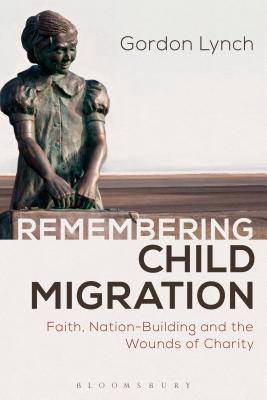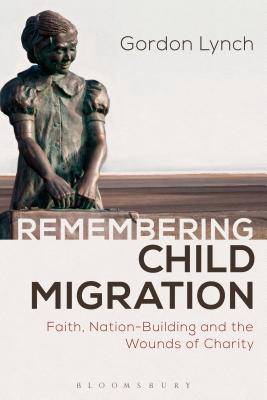
- Retrait gratuit dans votre magasin Club
- 7.000.000 titres dans notre catalogue
- Payer en toute sécurité
- Toujours un magasin près de chez vous
- Retrait gratuit dans votre magasin Club
- 7.000.0000 titres dans notre catalogue
- Payer en toute sécurité
- Toujours un magasin près de chez vous
Remembering Child Migration
Faith, Nation-Building and the Wounds of Charity
Gordon Lynch
Livre broché | Anglais
62,95 €
+ 125 points
Format
Description
Between 1850 and 1970, around three hundred thousand children were sent to new homes through child migration programmes run by churches, charities and religious orders in the United States and the United Kingdom. Intended as humanitarian initiatives to save children from social and moral harm and to build them up as national and imperial citizens, these schemes have in many cases since become the focus of public censure, apology and sometimes financial redress.
Remembering Child Migration is the first book to examine both the American 'orphan train' programmes and Britain's child migration schemes to its imperial colonies. Setting their work in historical context, it discusses their assumptions, methods and effects on the lives of those they claimed to help. Rather than seeing them as reflecting conventional child-care practice of their time, the book demonstrates that they were subject to criticism for much of the period in which they operated. Noting similarities between the American 'orphan trains' and early British migration schemes to Canada, it also shows how later British child migration schemes to Australia constituted a reversal of what had been understood to be good practice in the late Victorian period.
At its heart, the book considers how welfare interventions motivated by humanitarian piety came to have such harmful effects in the lives of many child migrants. By examining how strong moral motivations can deflect critical reflection, legitimise power and build unwarranted bonds of trust, it explores the promise and risks of humanitarian sentiment.
Remembering Child Migration is the first book to examine both the American 'orphan train' programmes and Britain's child migration schemes to its imperial colonies. Setting their work in historical context, it discusses their assumptions, methods and effects on the lives of those they claimed to help. Rather than seeing them as reflecting conventional child-care practice of their time, the book demonstrates that they were subject to criticism for much of the period in which they operated. Noting similarities between the American 'orphan trains' and early British migration schemes to Canada, it also shows how later British child migration schemes to Australia constituted a reversal of what had been understood to be good practice in the late Victorian period.
At its heart, the book considers how welfare interventions motivated by humanitarian piety came to have such harmful effects in the lives of many child migrants. By examining how strong moral motivations can deflect critical reflection, legitimise power and build unwarranted bonds of trust, it explores the promise and risks of humanitarian sentiment.
Spécifications
Parties prenantes
- Auteur(s) :
- Editeur:
Contenu
- Nombre de pages :
- 192
- Langue:
- Anglais
Caractéristiques
- EAN:
- 9781472591128
- Date de parution :
- 14-01-16
- Format:
- Livre broché
- Format numérique:
- Trade paperback (VS)
- Dimensions :
- 155 mm x 231 mm
- Poids :
- 294 g

Les avis
Nous publions uniquement les avis qui respectent les conditions requises. Consultez nos conditions pour les avis.






